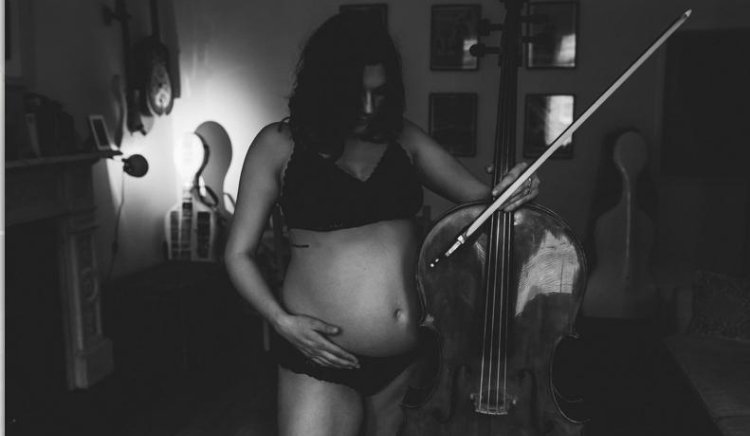Rachael Lander is a musician, a single mother, a recovering addict and a Trustee of Music Support. Here, she shares her experience of motherhood, seven years in
*Trigger warning: Rachael discusses birth, breastfeeding and post-natal mental health*
May is Maternal Mental Health Month. I know, me neither. The fleet of powerhouse instamums I follow for solidarity have taken this opportunity to share searingly honest accounts of their experience of motherhood. Reading them triggered a memory I’d buried, of my thirty year old pregnant self, waddling through Homebase the day before I went into labour with my first child. I was in the throes of what the baby books call “nesting” and what my then husband called “mania”. We lived in a falling down rented first floor converted flat with a larder, and I suddenly became laser focused on organising it with clear storage jars. They’d house all the large artisanal pasta shapes and porridge oats we were going to eat once I became a mother and responsible grown up. Never mind that I could barely walk due to electric bolts of pelvic pain, or breathe because it felt like my rib cage was full of baby leg, or stop excreting or gipping or crying long enough to ask the shop assistant to help me pick up the display tower of paint cans I’d inevitably knock over with my megabump. I had this idea of what kind of a mother I needed to be to my baby and I was SURE that that mother had a larder filled with labelled storage jars. With hindsight, I can see that I’d fallen back on a well-worn coping mechanism of mine which is to try and control the uncontrollable by fixating on a trifling detail. Left unchecked, my brain can turn a messy cupboard into a withering commentary about my character. Eg. If I don’t have see-through jars of “Store Cupboard Essentials” in my colour coordinated larder, what kind of a shit show am I running? Is my baby doomed to feel unsafe and unloved by a mother whose chaos is so prevalent that she can’t even find it within herself to organise her pantry? It wasn’t about the storage jars. It never is.
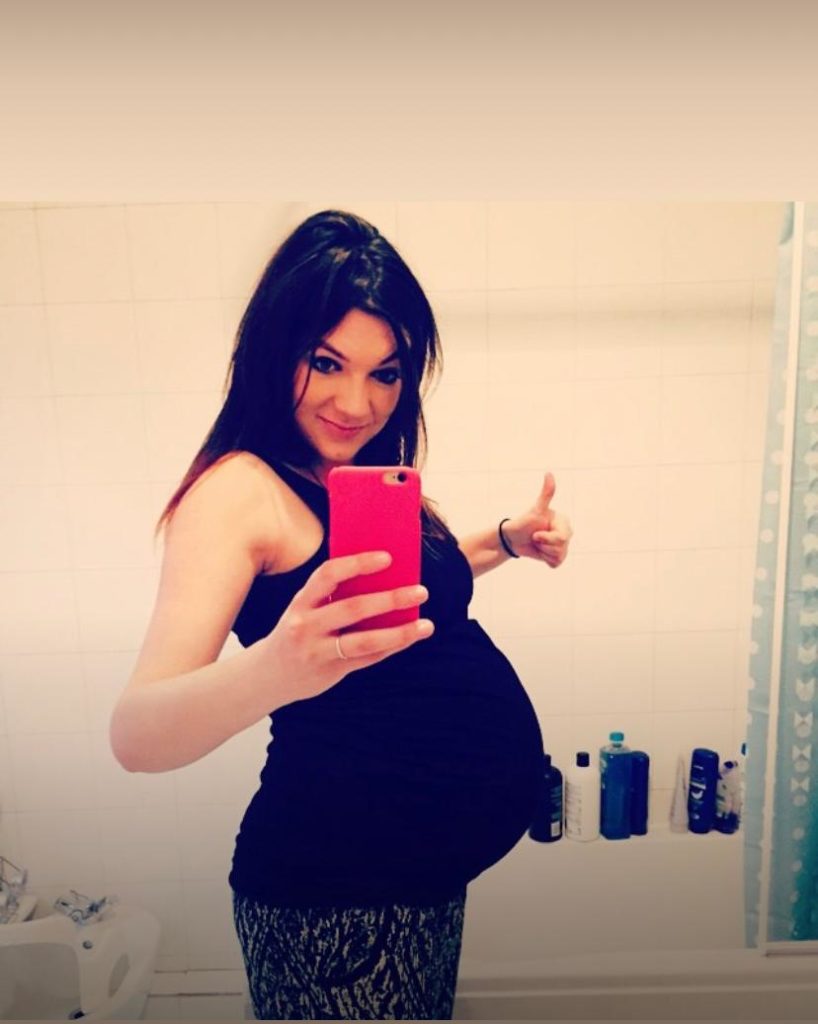
This visceral memory of my enormous pregnant self pushing through a gamut of unpleasant symptoms in order to purchase pointless kitchen accessories shows my total naivety about what was to come. I had NO IDEA. I still don’t. Mothering is a mystery. The longer I’m at it, the less I know, because my children are changing and growing with every moment. What worked last week or even this morning, may not fly when I pick them up from school this afternoon. I’m unsure about how to describe my maternal mental health. Since my children were born I have been through a divorce and a pandemic. I can’t distinguish depression from burnout, or anxiety from sheer overwhelm. Breastfeeding mothers are coursing with a hormone called prolactin, which produces a plethora of side effects, including mood disturbances. I couldn’t have told you if I had postnatal depression after my children were born because I was too tired. I spent my waking hours breastfeeding a baby who had become the centre of my universe and broken my vagina. I didn’t know who I was anymore, let alone how I felt.
I spend vast amounts of time in the company of mothers. 12 step recovering mothers, school mums in the playground, not to mention close friends and workmates. I don’t know any Mum that would say they’re living their best life right now, post pandemic, depleted, watching wars unfold and wondering how they will surmount the astronomical hike in the cost of living whilst caring for their families. At the school pick up, I catch myself staring dead eyed into the distance, to-do lists looping, hormones raging, exhaustion dragging and I’m not the only one. Another mum will ask me how I am and I say, “You know. Fine. Well, I mean, I’m a husk. I have nothing left.” And they invariably say, “I hear you. Me too.” I’m wary of pathologising the peaks and troughs of modern motherhood and all its demands with mental health labels, unless of course that’s helpful. If a diagnosis helps anybody find the support they need, then obviously that’s great, but frankly, I think depression and anxiety is a completely natural reaction to what is required of the modern Mum. The game is rigged. There’s too much to do and not enough time and energy with which to do it. Over the course of the two hours between waking up and the school run I can feel everything from heart swelling wonder and gratitude to incandescent rage. I’m totally in love with my children, but I mutter “for fuck’s sake” at least 10 times a day when they’re in my care. There have been times over the last two years when I probably would have had a mental health diagnosis if I’d sought one. I’m in therapy and 12 step recovery and without those ballasts, I’m not sure how I’d have fared. Becoming a mum has been the making of me. And sometimes it has felt like the breaking of me, too.
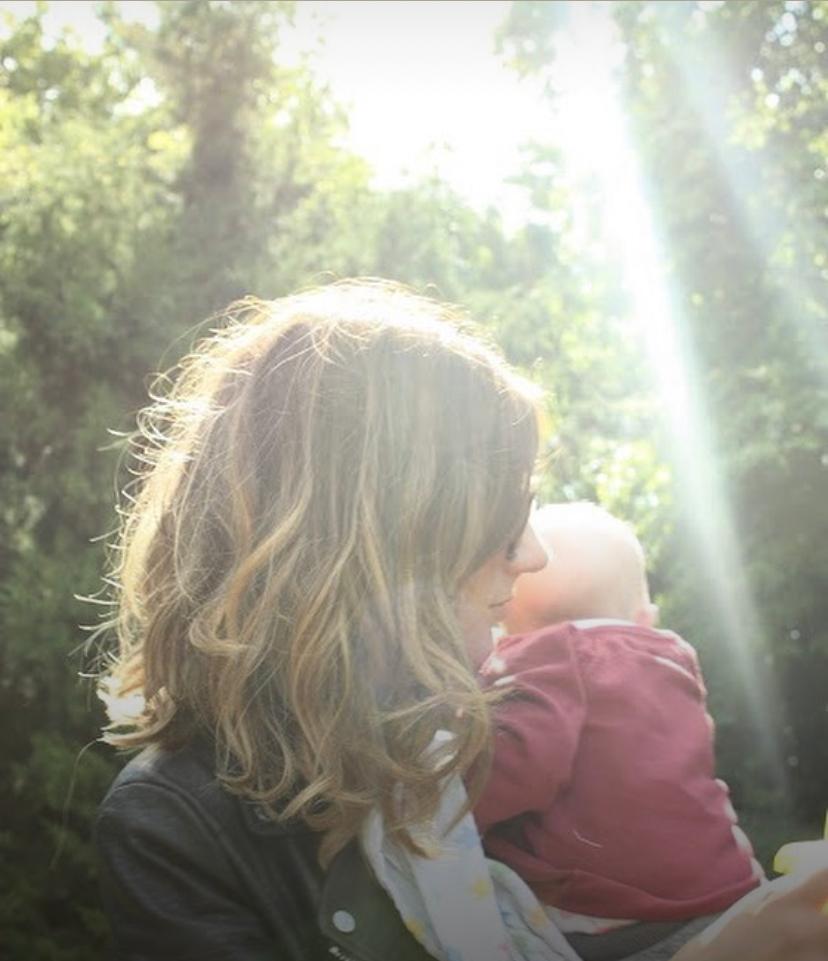
However, I have learned some rudimentary life lessons in my seven short years of motherhood. I thought I’d write them down for posterity. I can reread them when my children are surly adolescents with instagram accounts and pine for the simplicity of the early years.
Lesson One. I am about 1000 times more resilient than I thought I was.
I’m a recovering alcoholic who drank vodka all day in order to avoid feeling my feelings and dealing with the sensory clusterfuck that is being a living breathing human being. I drank so much and so often that by the time I was 23 I’d nearly destroyed everything good in my life and I had no choice but to get sober. Alcoholism made me feel like I was weak, cowardly and maladjusted to life, even years after I sobered up and ostensibly got my life back together. I was in my sixth year of recovery when I got pregnant with my son, Archie, and I was still wedded to a perception of myself that I was feeble, lacking in fortitude. Then, with the added support of my friend Amie, an experienced doula, the stars aligned and I was able to have an intervention free birth. My lad was an enormobaby. Not Guinness Book of Records enormo, but big enough that other mothers curse and make an “eeeeeesh” noise when I tell them how much he weighed. As my body squeezed him out in the birthing pool and I heard myself make sounds I didn’t recognise, I had an unfamiliar feeling. I didn’t recognise it at the time because it was so foreign, but what I felt was power. I couldn’t believe what I was able to withstand. The pain was so intense that it was almost (but not quite) funny. As I roared and writhed, bovine and flushed, I was incredulous. I desperately asked the midwives, “Is it meant to be this bad? Is this what it’s like? Why didn’t anyone tell me?” I remember looking at my then husband who was dutifully fulfilling his role, pale faced and frightened by the intensity and blood in the room. I felt both eternally bonded to him, and a million miles away. He’d never know what this was like. Afterwards, as I lay with my baby on my chest, I was conflicted and confused. I felt powerful and courageous and immense relief that it was over, but also vulnerable, frightened and like my body had been violated. For months I carried baby Archie in a sling because he hated the pram. I walked miles with him like that, and watched other mothers in cafes wondering if they’d felt how I did. The shock of the birth has never really left me, and yet. I was so in love with my boy. Briefly, I felt like a warrior. So I did it all again two years later. I know my experience is not universal and many people I love are dealing with the emotional aftermath of their births for a long time. I found mine traumatic even though on paper, I had what is unarguably a “good” birth experience. Good, bad, traumatic, labour healed something in me. The belief I carried that I was lily livered and fragile was left with the claret red tree of sinewy placenta in the pool. And it’s a good job, because the resilience training was only just beginning.
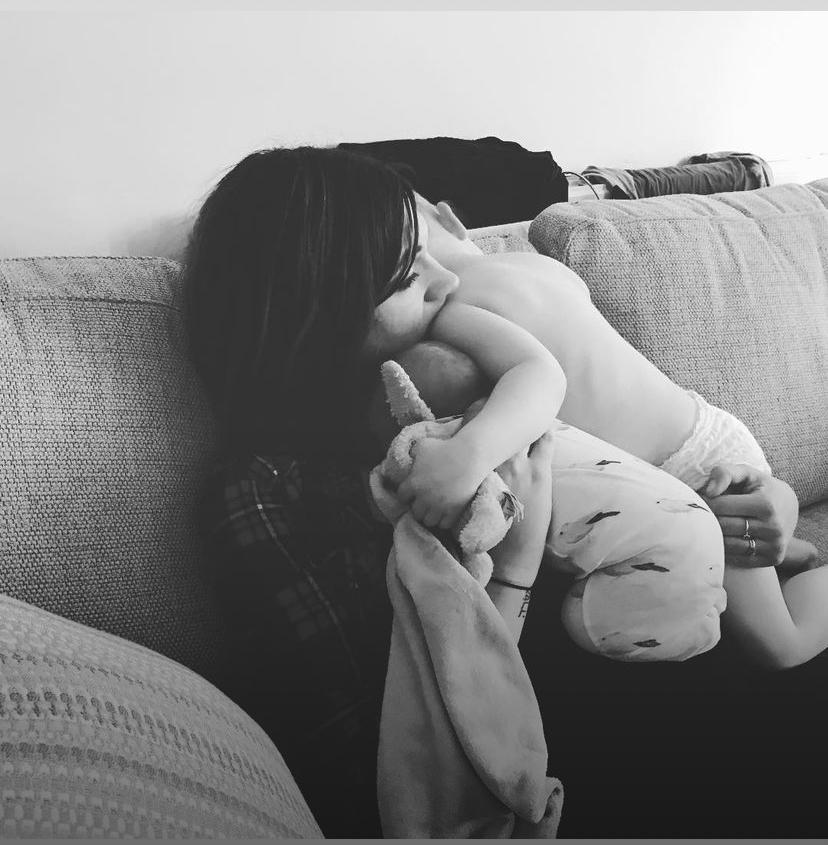
Lesson Two: AVOID THE BABY BOOKS. TREAT UNSOLICITED ADVICE LIKE ANTHRAX.
I am a person who is consistently bewildered by life and how to do it. I struggle hugely with the random chaos that permeates the core of the human experience and my antidote to that is to try and get to the truth of whatever confusing set of circumstances I find myself in by SEEKING ANSWERS. Unsurprisingly, when I gave birth to a beautiful mewling human baby that I didn’t understand, I went to an old coping mechanism, which was to read every baby book under the sun in a craven quest for guidance. Apparently I had maternal instincts, but I couldn’t be sure that they were trustworthy because my “instincts” had once led me into life threatening addiction. I was terrified that I wouldn’t be able to fulfill my role as a mother and I couldn’t decipher Archie’s cries. Was he hungry? Windy? Too hot? Sleepy? Angry? Doc? Also I was tired to my marrow. If my blood cells could talk, they’d have said, “I’m so tired. Also please get me a sandwich.” To try and decipher the chaos I ordered most of the “Mother and Baby” section of Amazon. A couple of the books were written by people who seemed VERY sure that their method of baby rearing was the only one that was correct. Nowadays I’d see this is a big red flag and immediately deposit said book, unread, at a charity shop. However, in my sleep deprived hormonal confusion, the dogma of these parenting gurus really appealed. I just wanted someone to tell me what to do. One of the more famous tomes (that close friends of mine swore by) unfathomably condemned the act of rocking your baby to sleep by describing it as “accidental parenting”. The books were full of timings, routines, hard and fast dos and dont’s. I baulked at every single one of them, and yet I naively assumed the book knew better than me and if I ever wanted to have a well adjusted content baby, I should follow its advice and ignore what my body and baby were telling me. Luckily the universe threw me a bone, in the form of a fantastic health visitor. She visited one day when Archie was about eight weeks old. I was obsessed and deeply afraid that we didn’t have a “routine”. Everyone I asked, every book I read, every ill advised social media post about newborns I pored over banged on and on about the importance of this ephemeral “routine.” It was all gaps between feeds and not letting your baby sleep in the sling or the pram and by the way, the dummy is the enemy. All of it made me feel like I was failing. Archie wanted to feed all the time. Sometimes the gaps were 10 minutes long. He was massive and he was hungry. He only slept on my chest, or nestled under my arm. He was having NONE of the cot, not for months. The HV walked upstairs and sat with me on my breastmilk sodden sofa as I wept, norks out, as they were constantly. She made sympathetic noises and warily eyed my library of self proclaimed parenting “bibles”. When the sobbing ceased, she drew breath and said, “With the utmost respect. If I could burn every one of those fucking books, I would.” She told me firmly that if I was to stay sane, I had to start trusting my instincts and STOP READING THE BOOKS. She picked up a particularly well thumbed volume and said archly, “The woman who wrote this doesn’t even have children.” I weepily explained my problem with trusting myself. She pointed to sleepy Archie, smiling the smile of the milk drunk, dream farting on my chest. “The best person to mother your son is YOU.” she said. “You know what you’re doing, I’m watching you do it.”
Soon after that, I started trusting what I knew of my own baby. I stopped looking for all the answers in other people. We did get into a rhythm of some sorts. But I channelled Frank Sinatra and did things that my friends and family wouldn’t have done, because they worked for me. I have cultivated a teflon coating that I mentally put on like a cape when people try to give me unsolicited advice about how to parent my own children. That’s not to say I don’t ask for help regularly, I’m just circumspect about who I ask. For instance, I planned a homebirth for the birth of my second baby and I felt really good about it. In the weeks prior to her birth, I stopped talking to people about it because everybody had an opinion or horror story and were compelled to share it with me. Just last week I had to firmly shut down another Mum who was hellbent on warning me that my 5 year old child was unsafe as we watched her confidently climb a tree she’s climbed every day after school for months. In recovery meetings I’ve heard, “Opinions are like arseholes. Everybody’s got one, but I don’t need to know anything about yours.” This pithy adage is never more true than when applied to the business of child rearing. Perfect the art of nodding and smiling if you want to appear to gamely listen to a random old lady on the train telling you your baby should be wearing a hat. Or better still, find a polite way to tell her to fuck all the way off. Up to you.
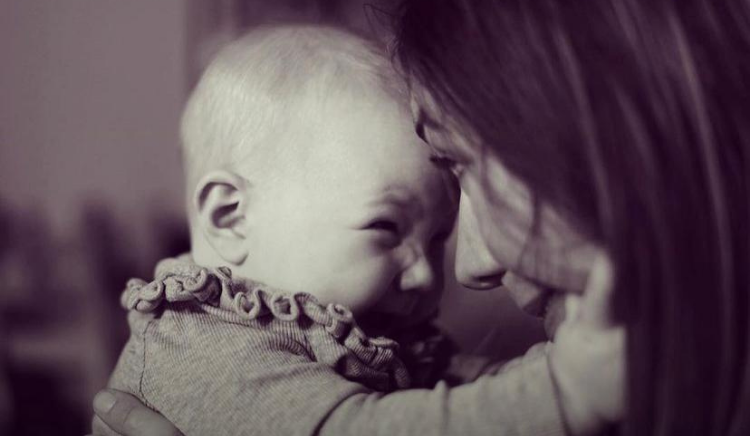
LESSON THREE: Let your mantra be: IT’S JUST A PHASE
Given that I’m a “one day at a time” gal, you’d think I’d remember to assimilate this when doing the mothering. The boddler years with my two felt like one long mind bendlingly difficult phase after another. At the time, each tranche of time felt terminal, but tellingly are now so cloudy in my mind that I’m having to dig into the memory banks to recall;
-
The phase when both babies would only sleep upright on my chest.
-
The phase where I couldn’t drive alone, because Archie wouldn’t go in a car seat without screaming until he heaved.
-
The phase where I couldn’t drop either of them off at the astronomically priced daycare without them clinging to me like koalas and crying so much that every time I walked away, I cried too.
-
Two years of lying on the floor next to them so they’d go to sleep at bedtime.
-
Teething. Drooling, rashy, grumpy, hot faced misery that felt interminable.
-
Both rounds of nappy to potty transition. Finding excrement in corners of the house and constantly accessorising with marigolds and a can of Dettol. Giving up trying time and time again, fearing my children may graduate secondary school wearing pampers.
I could go on. The commonality between each torturous phase was my perception of it. Every time, I forgot that it’s all temporary. I couldn’t imagine a time other than the one I was in.
(FYI. This is a very addict-y trait. We consciously or unconsciously react to unpleasant stimuli by panicking that it will be with us permanently. The discomfort is so intolerable that we are compelled beyond reason to chemically adjust our perceptions so we don’t have to wait it out. Addiction is a disease of shame and fear, but also, terrible, life threatening impatience).
No sooner would we sort out one issue than three more would crop up. I’m in a soul crushing phase right now where both my children resist meals and only want to eat snacks. The youngest won’t have her hair brushed, the oldest has a worry that the bear from the film Brave is going to eat his head in the middle of the night and can’t close his eyes at bedtime. Each night we look at a world map and discuss where the brown bears live and what bodies of water the bears in question would have to cross. Would a brown bear fit through the ticket barrier on the Northern Line? How many miraculous events would it take for the bear to enter our little flat in North London? I’m usually chasing the other one with a hairbrush and some detangling spray as we discuss this. In two weeks, I’ll be dealing with something else. It might be a worse thing. Or a better thing. But it will be different to the thing I’m dealing with right now. I used to call my own mum in tears about the sleeping or feeding or whatever was going wrong. She philosophically said “Just when it gets to the point where you feel insane, like you can’t take anymore, they’ll have a growth spurt. Something with change. Or you will.”
Click here for further information on Maternal Mental Health month including details of their confidential Helpline.
Click here for postnatal depression awareness and support from PaNDAS, a community offering peer-to-peer support for you, your family and your network.
Click here for details of Music Support’s confidential Helpline and further mental health and addiction resources.
